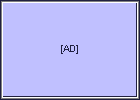Federal panel reverses course, sides with school
officials in Confederate flag case
By David Hudson
The Freedom Forum Online
07.28.00
A panel of federal judges has reversed course and determined that
two assistant school principals in Deltona, Fla., cannot be held
liable for suspending a student for displaying a Confederate battle
flag on school grounds.
In December 1995, Wayne Denno, a student at Pine Ridge High
School, showed several of his friends a 4-by-4 inch Confederate flag
during a lunchtime discussion about the Civil War. Denno alleges
that a school official immediately told him to remove the flag and
accompany him to the administrative office. Denno was suspended for
nine days.
Denno’s mother filed a suit on his behalf against the Volusia
County School Board and assistant principals Dennis Roberts and
Robert Wallace, alleging a First Amendment violation.
In August 1998, U.S. District Judge Anne Conway dismissed the
lawsuit. Conway ruled that the school officials were entitled to
qualified immunity because they did not violate a clearly
established constitutional right.
On appeal, a three-judge panel of the 11th U.S. Circuit Court of
Appeals, by a 2-1 vote, reversed Dunno’s suit with respect to the
qualified immunity issue. The panel ruled that because the school
did not have a history of racial tension, it was possible that there
was a First Amendment violation.
However, three months later, the panel withdrew its opinion and
ordered a rehearing. On July 20, the panel reversed its earlier
decision and agreed with Conway.
The panel voted 2-1 in Denno v. School Board of Volusia
County that the assistant principals were entitled to qualified
immunity because they did not violate a clearly established
constitutional right.
Most courts examining cases involving student suspensions over
Confederate flags have analyzed them under the standard articulated
by the U.S. Supreme Court in its 1969 decision Tinker v. Des Moines Indep.
Community School Dist. In Tinker, the high court ruled
that school officials could not censor student expression unless
they could reasonably forecast that the expression would cause a
substantial disruption in the educational environment.
However, in its most recent opinion, the panel majority said that
the controlling legal standard was not Tinker, but the more
recent 1986 decision Bethel School Dist. No. 403 v. Fraser.
In Fraser, the high court ruled that school officials did
not violate the First Amendment when they suspended a student who
gave a speech laced with vulgar references during a school assembly.
The panel majority cited the following language in the
Fraser case as the legal standard for public school
officials: “The undoubted freedom to advocate unpopular and
controversial views in schools and classrooms must be balanced
against society’s countervailing interest in teaching students the
boundaries of socially appropriate behavior.”
The panel majority determined that a reasonable school official
could presume that he or she had to comport with the Fraser
standard rather than the Tinker standard. “Thus, such a
reasonable school official might have been led to the view that the
legal landscape permitted application of the more flexible Fraser
standard where the speech involved intrudes upon the function of the
school to inculcate manners and habits of civility,” Judge Lanier
Anderson wrote for the majority.
Anderson switched positions in the second panel opinion. In the
July 1999 opinion, Anderson and Judge Owen Forrester ruled to
reinstate Denno’s lawsuit. Judge Susan Black dissented.
In the more recent decision, Anderson and Black ruled to dismiss
Denno’s lawsuit, while Forrester once again voted to reinstate part
of the suit.
“The Confederate battle flag itself is a catalyst for the
discussion of varying viewpoints on history, politics and societal
issues,” Forrester wrote. “Discourse on such issues, without the
fear of undue government constraint or retaliation is exactly what
the First Amendment was designed to protect.”
Frank Jakes, Denno’s attorney, criticized the panel’s handling of
the case, calling the decision to vacate the prior opinion and issue
another opinion without petition by either side “bizarre.”
“Why they took such a course of action may be the mystery that
may never be solved,” Jakes said.
Bruce Hanna, attorney for the school officials, agreed: “It is
very unusual for a circuit court to vacate its prior opinion without
a motion from either party.”
Jakes criticized the majority’s reliance on the Fraser
standard. “If this decision is upheld, then as to First
Amendment rights in public schools in the 11th Circuit, public
school officials will have absolute carte blanche to unilaterally
infringe on student rights with impunity and without losing
qualified immunity.”
Hanna responded: “The court was correct in deciding that, given
the tension between Tinker and Fraser, it is not clearly established
that a student has an unqualified right to symbolic speech.”
Jakes said that he will “absolutely challenge the ruling on some
level.”




